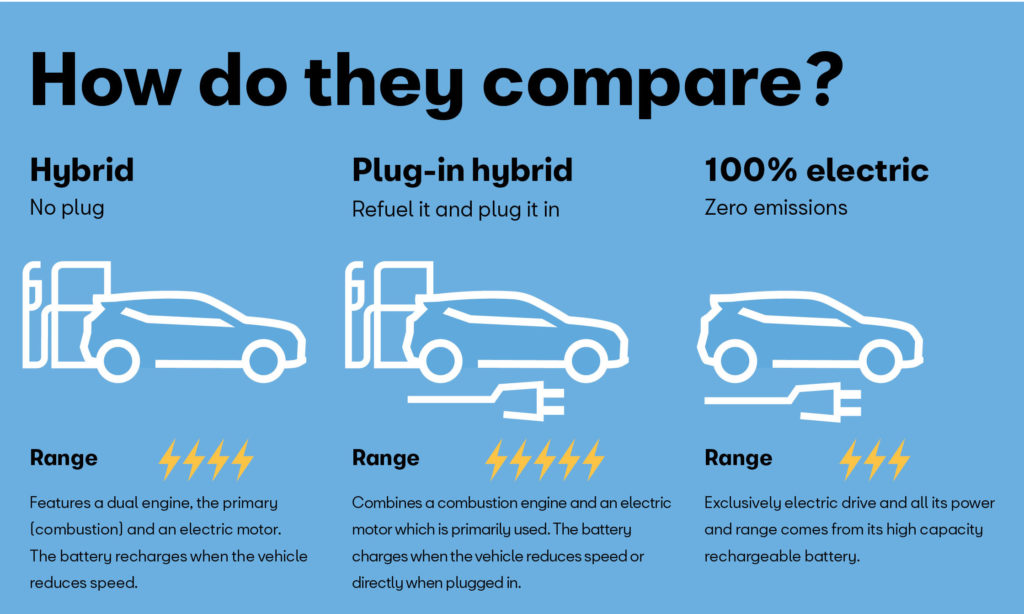The automotive world is shifting rapidly towards eco-friendly mobility, and with it comes a growing list of options for consumers. Among the top contenders are hybrid, plug-in hybrid (PHEV), and fully electric vehicles (EVs). Each has its own advantages and considerations, depending on your driving habits, budget, and environmental goals. So, which one is right for you? Let’s break down the differences to help you decide.
Hybrid Vehicles (HEVs)
How They Work:
Hybrids use both a gasoline engine and an electric motor. The electric motor assists the engine during acceleration and low-speed driving, improving fuel efficiency. However, they don’t need to be plugged in — the battery charges through regenerative braking and the internal combustion engine.
Pros:
- Great fuel economy compared to traditional cars
- No need to charge
- Lower upfront cost than PHEVs or EVs
Cons:
- Still relies on gasoline
- Limited electric-only driving range (if any)
Best For:
Commuters who want better fuel efficiency without worrying about charging infrastructure.
Plug-in Hybrid Vehicles (PHEVs)
How They Work:
PHEVs operate like hybrids but come with a larger battery that can be charged using an external power source. This allows them to drive a certain distance (typically 20–50 miles) purely on electricity before switching to gas.
Pros:
- Can drive short distances without using gas
- Flexible for long trips (uses gas when the battery is depleted)
- Lower emissions than HEVs
Cons:
- More expensive than regular hybrids
- Requires charging for optimal savings
- Smaller electric range than full EVs
Best For:
Drivers with short daily commutes who want to use electric power most of the time but still need gasoline backup for longer trips.
Electric Vehicles (EVs)
How They Work:
EVs run entirely on electricity. They have no gas engine and rely solely on electric motors powered by large rechargeable batteries.
Pros:
- Zero tailpipe emissions
- Lowest running and maintenance costs
- Instant torque and smooth acceleration
Cons:
- Higher upfront cost (though incentives may apply)
- Charging infrastructure varies by region
- Range anxiety for longer trips (though improving with newer models)
Best For:
Eco-conscious drivers with access to home charging who want to eliminate gas usage entirely.
Which One Should You Choose?
- Choose a Hybrid if you’re looking for a fuel-efficient car without changing your lifestyle or worrying about charging.
- Choose a Plug-in Hybrid if you want electric driving for your daily commute but need the flexibility of gasoline for longer journeys.
- Choose an Electric Vehicle if you’re ready to go fully electric and have reliable access to charging stations.
Final Thoughts
There’s no one-size-fits-all answer — it depends on your driving needs and access to charging. However, with rising fuel prices and increasing environmental concerns, any of these options is a step toward a cleaner and more efficient future. Evaluate your daily habits, do a cost-benefit analysis, and choose the vehicle that aligns with your lifestyle and values.

